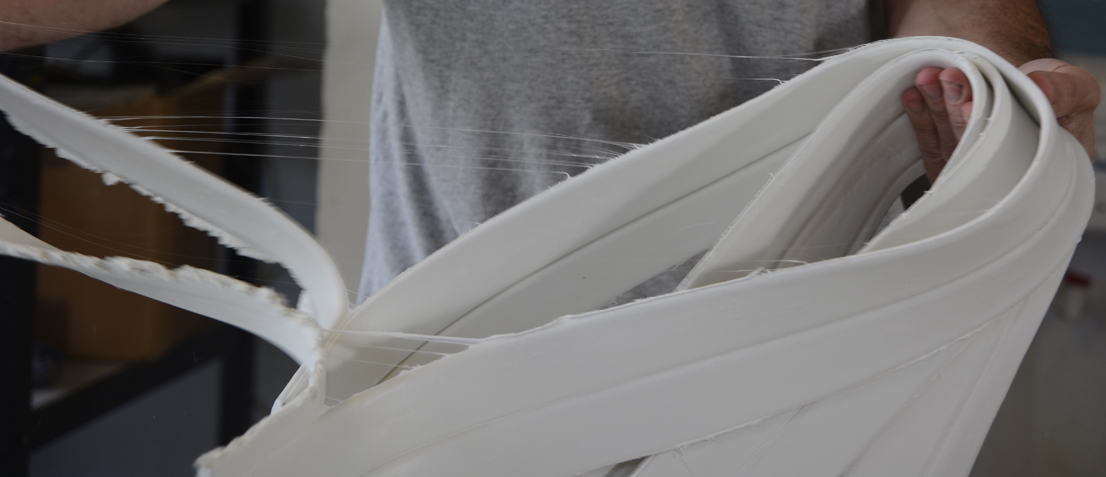What’s the difference between nitrile and neoprene for seals, joints and insulation?
These materials present a lot of similarities, but there are some important differences to bear in mind before making a decision.
Material properties:
- Nitrile offers excellent resistance to oil and solvent in a wide temperature range. This synthetic elastomer has greater resistance to petroleum-based hydraulic fluids.
- Neoprene offers moderate resistance to oils and petroleum derivatives, but provides significantly better resistance to sunlight, ozone and weather.
Differences in performance do not end there. Nitrile rubber has low resistance to flames; on the contrary, neoprene provides excellent resistance against fire propagation.
Applications:
The Nitrile rubber is recommended for applications that require resistance to oil, fuel, abrasion and temperatures up to 130°C. In vehicles and mobile equipment, nitrile seals and joints are used in carburetor diaphragms, fuel systems and hydraulic hoses. It is also compatible for rubber to metal bonding, which makes it a good option for applications in the processing industry. However, nitrile is not recommended for sealing and insulation which requires resistance to fire or outdoor factors.
The Neoprene rubber resists fire, sunlight and ozone exposure. Applications include sealing of doors, windows, hose covers, vibration supports and dampers. It is also used with HVAC units, electrical or electronic cabinets and weatherstrips for fire doors. Additional applications include expansion joints and bearing pads in metallic structures.
Making the right decision
Selecting compounds is crucial because choosing the wrong type of rubber can cause many failures in manufacturing or the final product.
Are you wondering whether nitrile or neoprene is the appropriate elastomer for your application? Are you in need of custom made sealing solutions that add value and reduce risk?






Soy cubano me dedico a trabajar el caucho en mi país llamamos «zapatillas a los gomas de las bombas de freno y demás y esto investigando que material es el idóneo para trabajar en ese fin porque el líquido de frenos que está a nuestra disposición no es el mejor .
Hola Alberto, ya derivamos tu consulta para que un asesor técnico se comunique con vos vía email.
Gracias!